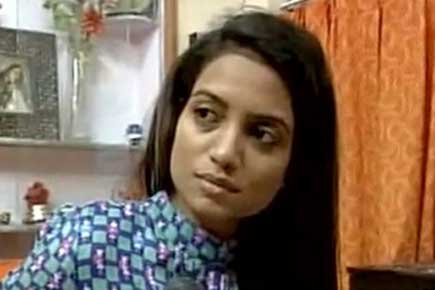A woman in Jaipur, who was divorced via speed post recently has moved the Supreme Court to nullify the prevailing practice of 'triple talaq' among Muslims

Believe it or not, a woman in Jaipur was divorced via speed post recently. That incident left the woman feeling so angry that she moved the Supreme Court to nullify the prevailing practice of 'triple talaq' among Muslims.
ADVERTISEMENT
25-yr old Afreen Rehman moved the apex court after receiving a divorce letter through speed post seeking the judiciary's intervention in the matter.
 Supreme Court
Supreme Court
Rehman says she got married in 2014 through a matrimonial portal. But almost immediately after marriage -- after about 2-3 months -- she claims her in-laws demanded dowry and started mentally harassing her.
“Later they started to beat me and in September my in-laws asked me to leave their place. Thereafter, I came to my maternal home and after some time received a speed post from my husband announcing divorce," Rehman told a news agency.
The triple talaq by mail left Afreen fuming. "This is completely wrong, unfair and unacceptable. I've filed a petition in SC seeking the court's intervention in the matter," Afreen was quoted as saying by the news agency.
This is not the first instance of a woman being divorced via mail or over the phone without the consent of the woman being taken into consideration.
The most famous case is of Shayara Bano, who received a letter from her husband in October 2015, which was a talaqnama divorcing her immediately. The mother of two moved the Supreme Court in February 2016 seeking to make the practices of instant triple talaq, polygamy and halala (a practice which requires that a woman consummate a new marriage before she can return to a previous one) illegal.
Bano has challenged the constitutionality of Section 2 of the Muslim Personal Law (Shariat) Application Act, 1937 in so far as it seeks to recognise and validate polygamy, triple talaq and nikah halala.
In November 2015, a fatwa by Dar-ul-Uloom in Deoband had ruled that talaq uttered thrice by a Muslim man on a mobile phone would be considered valid even if his wife was unable to hear it all the three times due to network and other issues.
Talaq-e-bidat is a Muslim man divorcing his wife by pronouncing more than one talaq in a single tuhr (the period between two menstruations), or in a tuhr after coitus, or pronouncing an irrevocable instantaneous divorce at one go (unilateral triple-talaq).
A high-level committee set up by the Central government to review the status of women in India has reportedly recommended a ban on the practice of oral, unilateral and triple talaq (divorce) and polygamy.
 Subscribe today by clicking the link and stay updated with the latest news!" Click here!
Subscribe today by clicking the link and stay updated with the latest news!" Click here!







